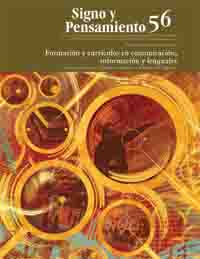Abstract
Within the program of Innovation and Improvement of Teaching Quality, Universidad Complutense de Madrid (Spain) approves the Project of Educational Innovation, whose purpose was to introduce cooperative work techniques in university teaching. The development and results of this project are described in this document. The scope, utilities, and limits of the experience, as well as the proposed methodology, are relevant when analyzing the group of teaching and learning models that were proposed in the context of the transformation of European Higher Education Area (EHEA).
Benítez, R. (2003), “El aprendizaje cooperativo en las actividades universitarias no presenciales”, en Tercera Jornada sobre Aprendizaje Cooperativo, Barcelona, Grupo giac, Universitat Politècnica de Catalunya.
Castells, M. (1998), La era de la información: economía, sociedad y cultura, vol. III, Madrid, Alianza Editorial.
Díaz-Aguado, M. J. (2006), Convivencia escolar y prevención de la violencia, Madrid, Ministerio de Educación y Ciencia.
Díaz-Aguado, M. J. y Andrés, M. T. (2000), “Co- operative Learning and Intercultural Education. Research-action in Elementary Schools”, en: Psychology in Spain, vol. 4, núm. 1.
Honebein, P. et al. (1994), “Improving Medical Students' Skills in the Clinical Care of Diabetes”, en: Annual Meeting of the American Diabetes Association, New Orleans.
Johnson, D.; Johnson R., y Johnson E. (1995), Los nuevos círculos de aprendizaje, cooperación en el salón de clase y en la escuela, Alexandria (Virginia, Estados Unidos), ASCD.
Jonassen, D. y Duffy, T. M. (1992), Constructivism and the Technology of Instruction: a Conversation, Hillsdale (EE.UU), LEA.
Mateo, J. (2007), “Interpretando la realidad, construyendo nuevas formas de conocimiento: el desarrollo competencial y su evaluación”, en: Revista de Investigación Educativa, vol. 25, núm. 2.
Ovejero, A. (1990), El aprendizaje cooperativo: una alternativa a la enseñanza tradicional, Barcelona, Promociones y Publicaciones Universitarias.
Paricio, J. (2009, 13 de febrero), “Claves para el diseño de actividades de aprendizaje en el marco de las metodologías activas” [conferencia], Madrid, Universidad Complutense de Madrid.
Rodríguez, S. (2000), “La evaluación del aprendizaje de los estudiantes”, en I Congreso Internacional: Docencia Universitaria e Innovación, Barcelona, Institus de Ciències e l’Educació.
Salas, M. R. (2004) “Una experiencia de aprendizaje cooperativo en la Universidad Pontificia Comillas de Madrid”, en: Cuarta Jornada sobre Aprendizaje Cooperativo, Barcelona, Grupo giac, Universitat Politècnica de Catalunya, UPC.
Sánchez, F. et al. (2006), Cómo diseñar una asi- gnatura del eees: de los objetivos formativos a la metodología y los contenidos, Barcelona, Departament D’Arquitectura de Computadors Universitat Politècnica de Catalunya.
Savery, J. y Duffy, T. (2001), Problem Based Learning: an Instructional Model and its Constructivist Framework, Bloomington, CRLT, Indiana University.
Winterton, J. Delamare-Le Deist, F. y Stringfellow, E. (2006), Typology of Knowledge, Skills and Competences: Clarification of the concept and prototype, Luxembourg, Office for Official Publications of the European Communities.
This journal is registered under a Creative Commons Attribution 4.0 International Public License. Thus, this work may be reproduced, distributed, and publicly shared in digital format, as long as the names of the authors and Pontificia Universidad Javeriana are acknowledged. Others are allowed to quote, adapt, transform, auto-archive, republish, and create based on this material, for any purpose (even commercial ones), provided the authorship is duly acknowledged, a link to the original work is provided, and it is specified if changes have been made. Pontificia Universidad Javeriana does not hold the rights of published works and the authors are solely responsible for the contents of their works; they keep the moral, intellectual, privacy, and publicity rights.
Approving the intervention of the work (review, copy-editing, translation, layout) and the following outreach, are granted through an use license and not through an assignment of rights. This means the journal and Pontificia Universidad Javeriana cannot be held responsible for any ethical malpractice by the authors. As a consequence of the protection granted by the use license, the journal is not required to publish recantations or modify information already published, unless the errata stems from the editorial management process. Publishing contents in this journal does not generate royalties for contributors.


